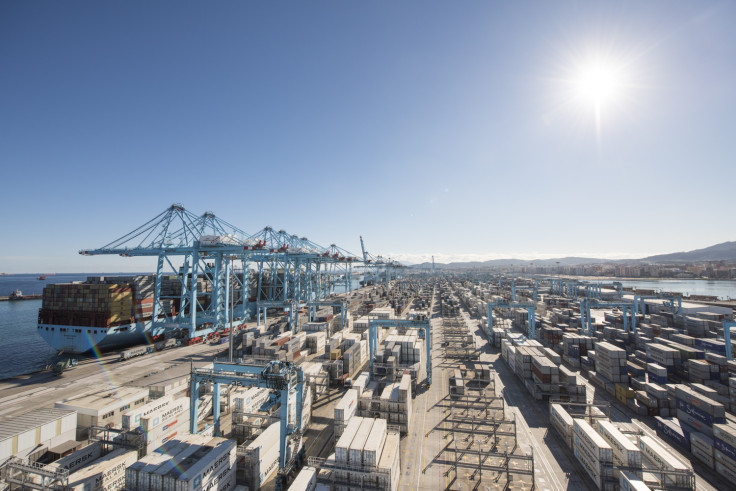Maersk and IBM to form joint venture for blockchain-based global trade
Plans for industry advisory body so suite of products JV creates meets participants' needs.

Maersk, the container shipping giant, is to form a joint venture with IBM which will use blockchain technology to begin streamlining logistical pain points in global shipping.
Maersk decided a new company (as yet unnamed) was needed to keep itself at arm's length from the digital platform and allow it to invite all the other players in the supply chain including its competitors to participate.
Ramesh Gopinath, VP Blockchain Solutions, IBM, said: "One pain point we could call the shipping information pipeline. The goal there is to provide end-to-end supply chain visibility that enables all the participants in the shipping transaction to securely and seamlessly exchange shipment events in real time.
"So from the retailer to the customs to the ports to everybody else, they will know exactly where a container is and what state the goods in the container are in. They can do various internal operations more efficiently knowing this information.
"The second pain point is paperless trade. Anyone who has dealt with customs paperwork knows what I'm talking about. The goal is to digitise and automate the paperwork filing for import and export of goods, enabling end users to securely submit and get the appropriate approval for documents across national boundaries."
Supply chain, trade finance and provenance tracking is one of the busiest spaces in the blockchain world. So are the other companies involved in supply chain solutions expected to jump on IBM and Maersk's platform?
Gopinath explained they are starting with these two pain points (there will be a whole suite of products in time) because they would be most beneficial to participants.
"That's the reason for going with open platforms and this arrangement of a JV, where Maersk itself is at arm's length, so essentially all the other shipping lines feel comfortable participating.
"In addition, we plan to have an industry advisory body which advises the JV so the evolution of the suite of products that the JV creates will meet the needs of the whole industry.
Inefficiencies in the ecosystem
"Yes, there are many other solutions in this space. All of them are handling different areas and inefficiencies in the ecosystem. How they all evolve is hard to envisage.
"They could all come together into one blockchain solution network, if you want to call it that. Or it could be multiple networks that inter-operate with each other: one for logistics, another for finance, another for insurance."
Maersk and IBM began a collaboration in June 2016 to build new blockchain and cloud-based technologies. Since then, multiple parties have piloted the platform including DuPont, Dow Chemical, Tetra Pak, Port Houston, Rotterdam Port Community System Portbase, the Customs Administration of the Netherlands, and US Customs and Border Protection.
Other firms exploring the platform include General Motors and Procter & Gamble, which want to streamline the complex supply chains they operate, and freight forwarder Agility Logistics, which wants to provide improved customer services including customs clearance brokerage.
Additional customs and government authorities, including those in Singapore and Peru, will explore collaborating with the platform to facilitate trade flows and enhance supply chain security.
The global terminal operators APM Terminals and PSA International will use the platform to enrich port collaboration and improve terminal planning. With support from Guangdong Inspection and Quarantine Bureau by connecting to its Global Quality Traceability System for import and export goods, the platform can also link users to important trade corridors in and out of China.
After regulatory clearance, solutions from the joint venture are expected to become available within six months. The new company will be base its headquarters in the New York metropolitan area.






